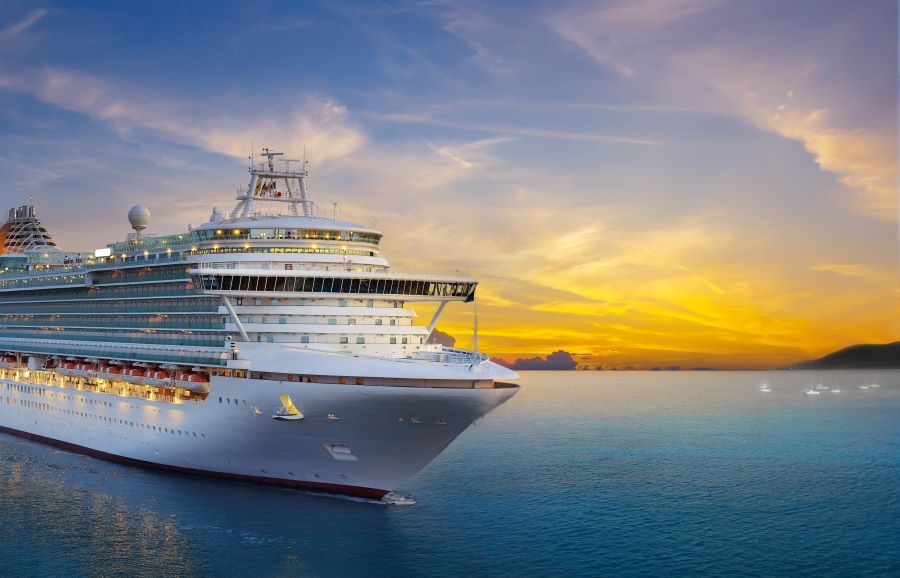Cruising: A Comprehensive Guide to Ocean Travel
Cruising has become an increasingly popular way to explore the world, offering travelers a unique blend of luxury, adventure, and convenience. This form of travel allows passengers to visit multiple destinations while enjoying the comforts of a floating hotel. From tropical getaways to cultural expeditions, cruises cater to a wide range of interests and budgets.

What exactly is a cruise?
A cruise is a form of travel that involves sailing on a ship or boat, typically for pleasure. Cruise ships serve as floating resorts, complete with accommodations, dining options, entertainment venues, and various amenities. These vessels range from small, intimate ships to massive floating cities that can carry thousands of passengers. Cruises often follow set itineraries, stopping at multiple ports of call where passengers can disembark to explore local attractions.
How do cruise itineraries work?
Cruise itineraries are carefully planned routes that ships follow during a voyage. These itineraries can vary greatly, from short weekend trips to extensive world cruises lasting several months. Typical cruise durations range from 3 to 14 days, with stops at different ports along the way. Itineraries are designed to showcase the best of each region, whether it’s the sun-soaked beaches of the Caribbean, the historic cities of the Mediterranean, or the rugged landscapes of Alaska.
What types of cruise experiences are available?
The cruise industry offers a diverse array of experiences to suit different preferences and interests. Luxury cruises focus on providing high-end amenities, gourmet dining, and personalized service. Family-friendly cruises feature activities and facilities designed for children and teenagers. Adventure cruises might include expeditions to remote destinations like Antarctica or the Galapagos Islands. Theme cruises cater to specific interests such as music, food and wine, or wellness. River cruises offer a more intimate experience, navigating inland waterways and exploring historic towns and cities.
What amenities can you expect on a cruise ship?
Modern cruise ships are equipped with a wide range of amenities to keep passengers entertained and comfortable throughout their journey. Common features include multiple restaurants and bars, swimming pools, fitness centers, spas, theaters for live performances, and casinos. Many ships also offer specialized facilities like rock climbing walls, ice skating rinks, water parks, and simulators. Staterooms vary from basic interior cabins to luxurious suites with private balconies. Some cruise lines even feature high-tech innovations like robot bartenders or virtual reality experiences.
How does cruise pricing work?
Cruise pricing can be complex, with various factors influencing the final cost. Basic cruise fares typically include accommodation, meals in main dining areas, and access to onboard entertainment and facilities. However, additional costs may apply for specialty dining, alcoholic beverages, shore excursions, gratuities, and onboard activities. Prices can vary significantly based on factors such as the cruise line, ship, itinerary, cabin type, and time of year.
| Cruise Line | Base Fare (per person) | Inclusions | Additional Costs |
|---|---|---|---|
| Royal Caribbean | $500 - $3000+ | Accommodation, main dining, entertainment | Specialty dining, drinks packages, shore excursions |
| Norwegian Cruise Line | $400 - $2500+ | Accommodation, dining options, entertainment | Premium restaurants, beverages, spa treatments |
| Carnival Cruise Line | $300 - $1500+ | Accommodation, meals, onboard activities | Drink packages, specialty dining, Wi-Fi |
Prices, rates, or cost estimates mentioned in this article are based on the latest available information but may change over time. Independent research is advised before making financial decisions.
How can you find the best cruise deals for 2025?
Planning ahead for cruise deals in 2025 can lead to significant savings. Many cruise lines offer early booking discounts for future sailings, sometimes up to two years in advance. To find the best deals, consider the following strategies:
-
Sign up for cruise line newsletters and loyalty programs to receive exclusive offers.
-
Work with a travel agent specializing in cruises who may have access to special promotions.
-
Be flexible with your travel dates, as prices can vary depending on the season.
-
Consider booking during wave season (January to March), when cruise lines often offer their best deals.
-
Look for repositioning cruises, which can offer lower prices as ships move between seasonal destinations.
Remember that while searching for deals, it’s important to compare the overall value rather than just the base price. Consider what’s included in the fare and any additional costs you might incur during your voyage.
Cruising offers a unique way to explore the world, combining travel and accommodation in one seamless experience. Whether you’re seeking relaxation, adventure, or cultural enrichment, there’s likely a cruise that fits your desires. As the industry continues to evolve, future cruises in 2025 and beyond promise even more innovative experiences and destinations for travelers to enjoy.




